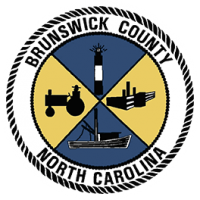 The Cape Fear Rural Transportation Planning Organization Transportation Advisory Committee remains after a new election under the same leadership in place since 2014.
The Cape Fear Rural Transportation Planning Organization Transportation Advisory Committee remains after a new election under the same leadership in place since 2014.
Brunswick County Commissioner Frank Williams was unanimously reelected to serve as chair and Whiteville Mayor Terry Mann was unanimously reelected vice chair during the committee’s Feb. 12 meeting held via Zoom due to COVID-19, the county announced Friday. Williams and Mann have served as chair and vice chair since January 2014.
Supporter Spotlight
The Cape Fear RPO, which covers Brunswick, Columbus and Pender counties, serves as the intergovernmental organization for local elected officials, the state Department of Transportation and residents to work together to address rural transportation issues. The Rural Transportation Advisory Committee is the RPO’s advisory board made up of elected officials from the three counties, according to the county.
“Serving as RTAC Chair for the past seven years has underscored the importance of having a strong voice for rural transportation in southeastern North Carolina,” said Williams in a statement. “As areas in our state west of I-95 become increasingly urbanized, it is important for those of us who live in eastern North Carolina to make our voices heard. I look forward to continuing to work with Vice Chairman Mann, the other members of the committee, staff, elected leaders in the communities we represent and the NCDOT to ensure that our rural transportation needs and priorities are heard.”
In 2000, the state addressed the need for more coordinated transportation planning in rural areas of the state not within a Metropolitan Planning Organization, or MPO, by authorizing the establishment of Rural Transportation Planning Organizations, leading to the development of Rural Transportation Planning Organizations. Administrative support for the Cape Fear RPO is provided by the Cape Fear Council of Governments.
RPOs, guided by state law, are intended to address and improve rural area transportation planning processes by carrying out the following four core duties:
- Develop, in cooperation with the NCDOT, comprehensive transportation plans.
- Provide a forum for public participation in the transportation planning process.
- Develop and prioritize suggestions for projects that the organization believes should be included in the state’s Transportation Improvement Program.
- Provide transportation-related information to local governments and other interested parties.






